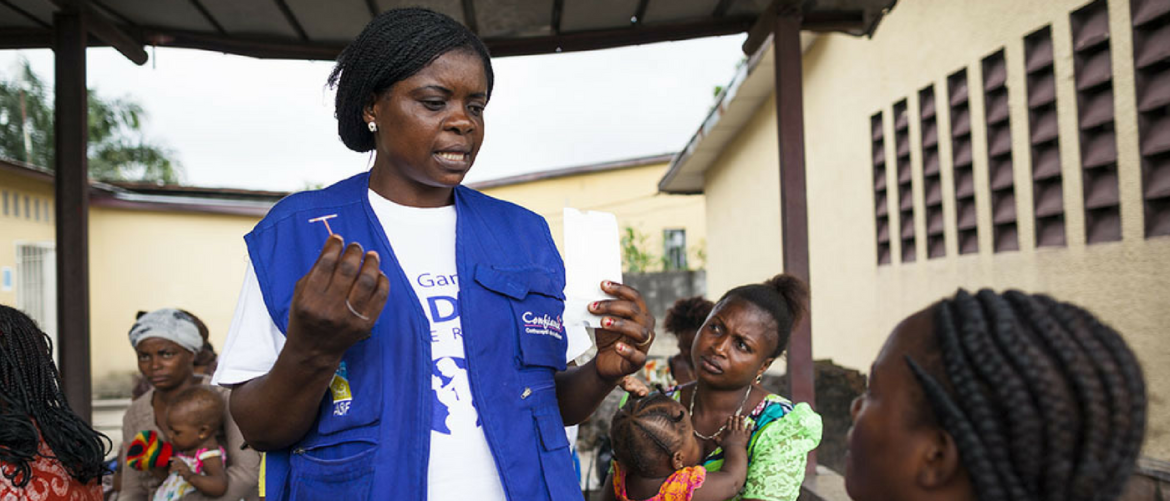 The clinic’s massive courtyard is filled with women and small babies cradled, toddling, jumping and most other action verbs.
The clinic’s massive courtyard is filled with women and small babies cradled, toddling, jumping and most other action verbs.
Children cry and roosters crow while M.J. talks to 50 women seated on cement benches under a hot tin roof outside the Salvation Army’s Centre De Sante Bomoi clinic in Kinshasa, DRC.
She sings a call and response tune to get the women’s attention over the din. “Have a pregnancy. Space it,” she sings. The women repeat, “Have a pregnancy. Space it.”
M.J., who was trained as a community health worker by Association de Santé Familiale (ASF), Population Services International’s affiliate network member in the Democratic Republic of Congo continues:
“On our shirts, we have the word Confiance,” which is the name of ASF’s social franchise. “We use this word because family planning is about building trust between a man and a woman. This training is about learning to space your babies.”
She walks the young women through a range of contraceptive choices offered at the clinic. She tells them how to take oral contraception. She explains about injections. Then, she walks through 5-year implants, which can be removed if the woman wants to become pregnant. And finally, she talks about the IUD, which protects women from pregnancy for up to 10 years. She sums it up with a sly “Your husband won’t feel a thing.”
Word of mouth recommendations go a long way here. M.J. opens it up to the crowd and says, “Tell me, friends, if you use family planning, what has been your experience?”
A woman in purple named Ginette stands up in a flash. “Mbote,” she says, which means hello in Lingala, the local language. “I came here two years ago for an implant, which is protecting me for five years. It doesn’t hurt and it gives me freedom.”
Another woman jumps up. “I have had eight children. Three died because I was hemorrhaging so badly. I decided to stop having children. I chose implants and now I have five years of safety.”
The trainer asks if anyone has any questions.
Several women ask about things they’ve heard about from their neighbours. “Do you get a discharge with the implant?” “No. You’ve gotten some wrong information,” M.J. answers.
As the session wraps up, M.J. says, “We’ll give you flyers and leaflets. Our number is there. We also work in other provinces, so please pass these leaflets out to friends and relatives who don’t live nearby. Spread the word.”
She knows well that, in DRC, positive word of mouth is everything.
By Alia McKee, Sea Change Strategies


